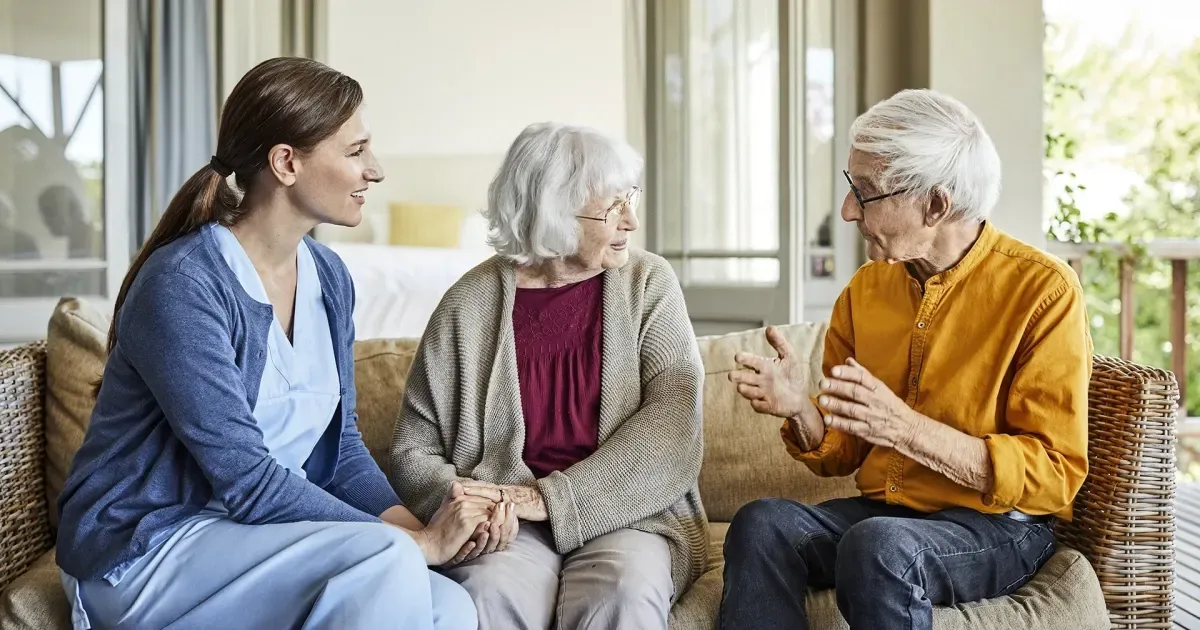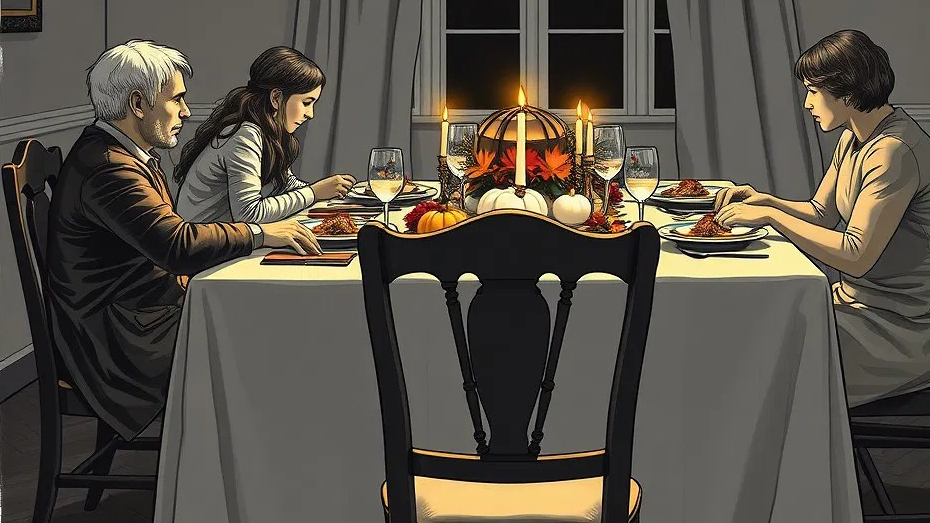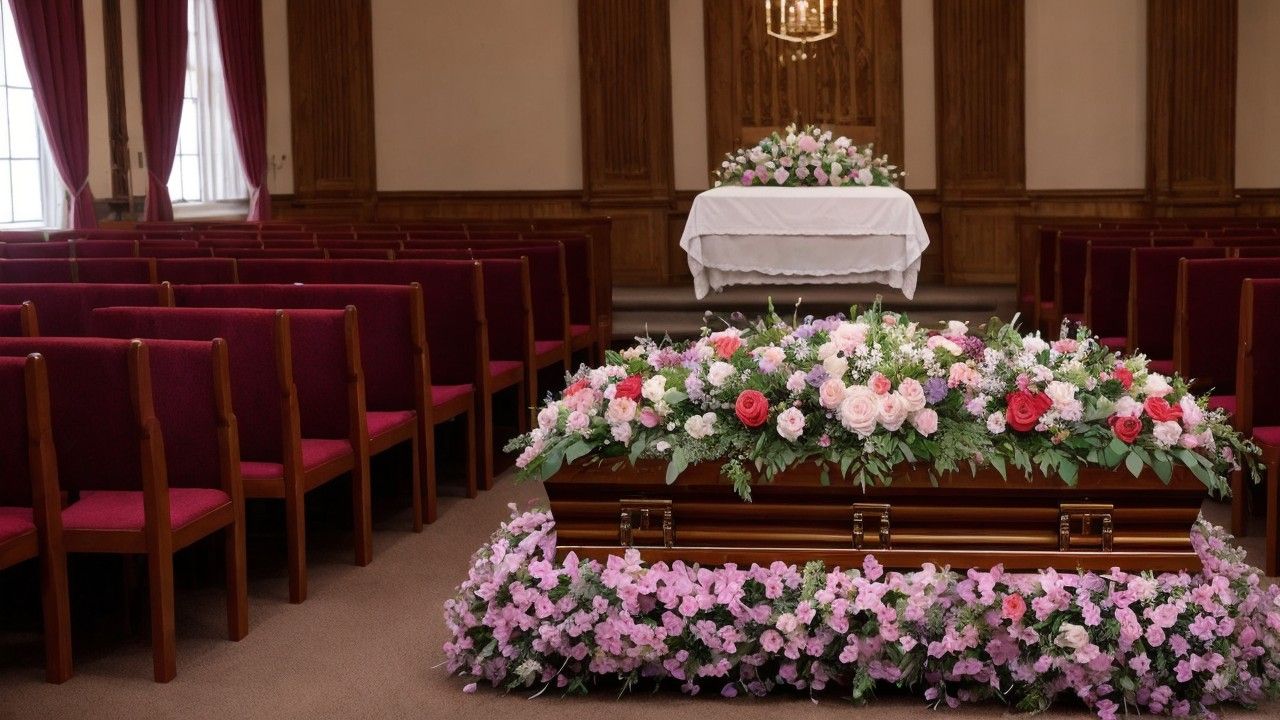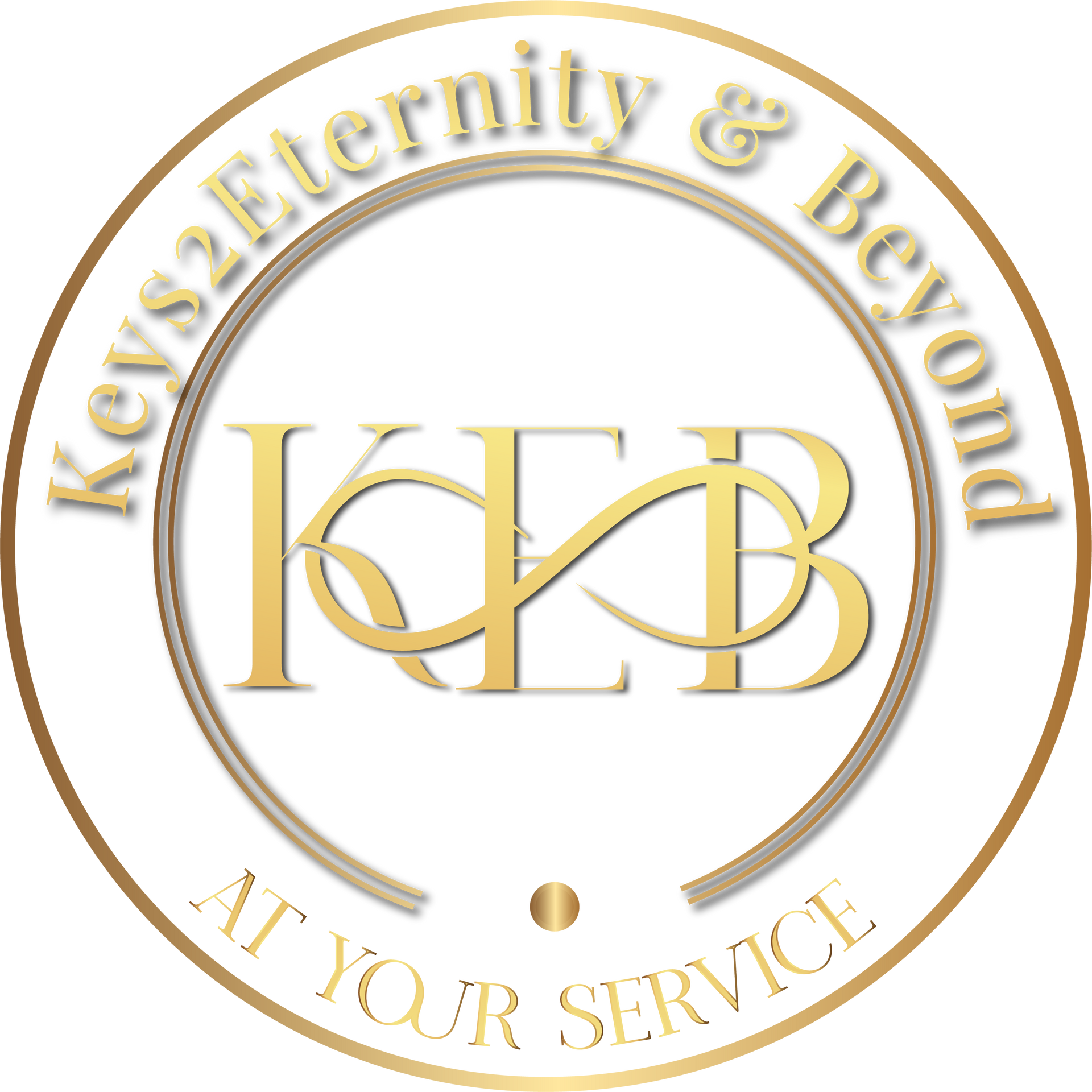Find a Trusted Proivder
Helpful Links

Business Hours
- Mon - Fri
- -
- Sat - Sun
- Closed

Share This Article
When the doctor informed the family of Geraldine Harper that her medical prognosis was way too low, they knew the end couldn't be far. While she stayed in hospice care, the family, composed of her two daughters, a son and their spouses, convened to deliberate on how to make the most of her remaining days.
They wanted to ensure she was comfortable and be there by her side when the day finally arrived. Unfortunately, dealing with death on such an intimate level was something the family was not emotionally and psychologically prepared for.
“While being by her bedside throughout her journey with cancer was effortless and manageable, it was a whole different scenario when it came to sitting by her deathbed to simply watch her die,” says Geraldine's daughter, Stacy Harper.
Both scenarios were draining, whichever way you look at it, but at least while under medical care, it came with some consolation that she would pull through, you know, that it would soon be over. That's not the same as when the outcome has been determined, and you're just sitting there watching them die. The trauma is different,” she adds.
That's when the idea of having a Death Doula became viable. “We figured we could do with some professional help, coming from someone whose job is to help people with positive and peaceful transitions,” Stacy explained. Unfortunately, the matriarch died within days in hospice.
“I guess we took rather too long deciding when to contact the Death Doula,” Stacy reported, affirming they missed out on the opportunity to be intimately involved in her final passage. “We could have called her sooner.”
It Is Never Too Late To Get Support
What Stacy— and other families faced with imminent death— don't realize is that apart from supporting people in their end-of-life journey, Death Doulas do so much more, including meeting grieving families in the middle of a storm and sailing them calmly to shore. It is never too late to reach out for support since the effects of death reverberate long after the funeral.
Sometimes, it's not just about helping the loved one transition peacefully if they've already done that. Sometimes, it's about handling grief, focusing on it, and healing.
So, when should you contact your death doula? Before we dwell on that, we could do with a little definition. Not many are familiar with Death Doulas or what they do, for that matter.
What Is a Death Doula?
The end-of-life journey can be long or short, but multiple layers of professional support are involved along the way. The most basic is hospice and palliative care, in which patients and their loved ones receive, among other things, medical care.
In contrast, a Death Doula, otherwise called an end-of-life doula, provides additional support that enhances traditional care. Their support is typically non-medical and revolves around the emotional, spiritual, and physical well-being of the transitioning patient and their loved ones.
Ideally, hospices and palliative care institutions focus on symptoms and physical pain management. At the same time, the doula helps the patient achieve a better death by guiding them to live purposefully during their remaining time. They also provide companionship throughout the end-of-life journey.
Doula is a Greek word derived from the term “a woman of service.” It primarily referred to traditional midwives whose services were invaluable during birth, hence Birth Doulas. Death Doula or “end-of-life doula” are the modern terms for these servicewomen who offer similar emotional, spiritual, and physical guidance to those transitioning to death, so they can also be considered death midwives or end-of-life coaches.
At the core of a doula’s work is nonjudgmental, holistic support that encourages patients and families to choose their desired death experiences while enjoying all the support they need. Death midwives work to bring fulfillment and comfort to the dying process while ensuring the patient is surrounded by compassionate companionship throughout it all.
Who Needs an End-of-Life Doula?
According to the International End of Life Doula Association, (INELDA), anyone transitioning from life to death can use the services of a doula, and a doula can begin working with a patient or their loved ones at any stage of the end-of-life process. Most people choose to contact a death doula from the time they receive a terminal diagnosis or a lower medical prognosis.
Others opt to bring in the death midwife for emotional and spiritual stability when death is highly imminent. Still, others may enlist the services of a doula after the death has occurred, and they need support with the grieving process. Most doulas work independently, while others are available in conjunction with hospice and palliative care to provide the family with the best possible experience.
What Does A Doula Do?
The services offered by a death doula may vary depending on their training and certification. Here are some of the primary roles of a death doula.
- Provide a detailed explanation of common signs and symptoms of dying and what they mean.
- Assist in finding the meaning of the patient's life and legacy
- Listen to the dying person's thoughts and provide counsel
- Provide companionship by sitting vigils so the patient doesn't die while alone.
- Provide comforting massage and emotional support
- Assume the role of caregiver, household helps, errands and transportation
- Provide grief support to the bereaved family.
So When Should You Contact A Death Doula?
As we have already mentioned, a death doula can be available to assist anytime once a patient begins their end-of-life phase. However, if you need a more specific timeline, the following can indicate that it's time to call the death midwife.
- Your independence gradually diminishes, and you need help adapting to and coping with these new developments while maintaining your dignity. In short, you can't do anything alone anymore.
- You're a caregiver needing an extra pair of hands, a professional end-of-life plan, and guidance. You want someone to walk with you through the whole ordeal.
- You want holistic, all-around care that addresses your physical, emotional, mental, spiritual, and relational realms.
- You want to understand your choices as you undergo physical and general life changes.
- You want support in understanding and recognizing your legacy.
- You want to understand what an intentional relationship with death entails without being overwhelmed by despair or feeling alone in the face of death.
- You are part of the death-positive movement and want an empowered relationship with death for yourself, your loved ones and the community without feeling too morbid.
- You want to face your mortality with stoicism and need help with acceptance.
Contacting a Death Doula: Final Thoughts
The reason most people delay calling a doula is indeed the fear of accepting that death is imminent. However, beyond that fear is a seamless communion with life where you experience all of its shades of joy and grief.
Once you have a death doula by your side, you'll be surrounded by meaningful care and support. It's when you begin to experience the sacred intimacy that connects life and death. It means you choose to be held in belonging, in the tenderness of your temporality. There and then, you'll feel a deep, intimate belonging with your body, family, and friends.
But even more reassuring is that you don't need to be in the throes of death to talk to a Death Doula. Sometimes, all you need is a deep, personal conversation about death and the fear of it. To this end, feel
free to call an end-of-life doula near you today. You'll be surprised how such a conversation can shift your perspective on how you live now.
“The only way death is acceptable, is because we, as human beings, live for something bigger than ourselves.”
— Atul Guwande.
Related Articles
Related Articles





